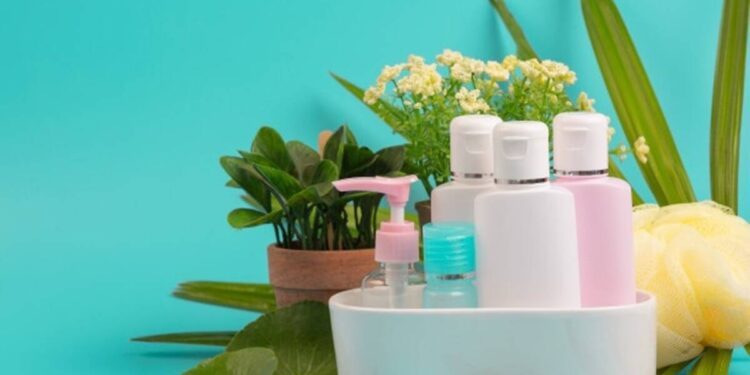 Experts believe that more awareness has to be created with education among women on the importance of feminine hygiene products
Experts believe that more awareness has to be created with education among women on the importance of feminine hygiene productsIf 2020 brought about one change in consumers’ mindsets, it has been the shift towards personal hygiene. On the back of growing awareness about hygiene and related products, the feminine hygiene market seems to have witnessed unprecedented growth. According to Research and Markets, the feminine hygiene products market was valued at Rs 32.66 billion in 2020 and is expected to reach Rs 70.20 billion by 2025 at a CAGR of 16.87%. “For us, the number of orders has been increasing by 35% month-on-month since April 2021. On a daily basis, we are clocking about 1500-1600 orders currently. Moreover, body grooming as a category, which accounted for about 10% of the pre-pandemic sales, has grown to 35% now. Intimate skincare accounts for 45-50% of the overall sales,” Harry Sehrawat, co-founder, Sanfe, told BrandWagon Online. The D2C company aims to log revenue of Rs 40 crore in FY22 compared to Rs 13 crore in FY21 as well as expand offline in the next 12-18 months.
Sirona Hygiene, the maker of PeeBuddy, aims to clock a revenue of Rs 55 crore in FY22 as the company plans to expand its offline presence to Bombay, Pune, Hyderabad in this fiscal, apart from its existing presence in Delhi and Bangalore. The company claims that average orders have doubled compared to the pre-pandemic period. “Earlier, metros and tier 1 cities accounted for about 70% of the overall sales. Now, they account for about 55% and the share of tier 2 and tier 3 cities have gone up to 45%. Many people who were in top tier cities moved back to their own homes, which is driving growth across cities,” Deep Bajaj, co-founder and CEO, Sirona said.
Interestingly, the growth seems to have piqued investors’ interest. For instance, Sirona Hygiene raised $3 million led by NB Ventures, IAN Fund in April 2021. Sanfe has raised series A funding of $1 million from the likes of LetsVenture, Mcaffeine CEO Tarun Sharma, Ajay Garg, Arjun Vaidya, Dhimant Parekh among others. Direct to consumer feminine hygiene brand The Woman’s Company has recently raised $1.4 million in a pre-series A round from Pradip Burman, chairman of Mobius Foundation. “With the funding, our focus this year is to be able to penetrate into the Indian market in a larger manner as well as to concentrate on the US market,” Anika Parashar, founder and CEO, The Woman’s Company, said, adding that the sustainable hygiene brand (makers of biodegradable products such as panty liners, tampons, bamboo razors, pee sticks, among others) launched in March 2020, continues to grow 40% month-on-month currently.
Even as the industry has been growing, experts believe that more awareness has to be created with education among women on the importance of feminine hygiene products, along with the ease of availability of these products across the rural and urban markets. “Social stigma, the high cost of hygiene products, and their negative impact on the environment are some of the challenges the companies in the category face to drive growth,” Rajat Wahi, partner, Deloitte India, said. He further added that due to the growing awareness of sustainability, the category is witnessing a high demand for biodegradable, compostable, and eco-friendly products and brands will need to prepare for that.
Meanwhile, the category has found its share of detractors. As per dermatologists, feminine hygiene products such as tampons, sanitary pads, feminine washes, sprays, powders and wipes contain chemicals such as dioxins in tampons, phthalates in sanitary pads and other volatile organic compounds (VOCs) like fragrances and adhesives. These can be endocrine disrupting chemicals (interfere with hormonal functions), allergy-causing, or even carcinogenic, Dr. Ankita Pant, attending consultant, Department of Dermatology, Max Multi Speciality Centre Panchsheel Park, said. “Studies are lacking to show the rate of absorption of these chemicals through the female reproductive tract. The need of the hour is to ask for studies into the safety of these chemicals over single as well as lifetime usage. There is a huge data gap in this area, not just in India but even in more developed nations. Standardised safety regulations need to be established and manufacturers need to be made compliant,” she added.
As these brands continue to see growth, experts believe it will be important to address these issues.
Read Also: UP Election 2022: Political parties to go all gun blazing; to spend about Rs 8,000 crore in advertising
Follow us on Twitter, Instagram, LinkedIn, Facebook
Get live Stock Prices from BSE, NSE, US Market and latest NAV, portfolio of Mutual Funds, Check out latest IPO News, Best Performing IPOs, calculate your tax by Income Tax Calculator, know market’s Top Gainers, Top Losers & Best Equity Funds. Like us on Facebook and follow us on Twitter.
![]() BrandWagon is now on Telegram. Click here to join our channel and stay updated with the latest brand news and updates.
BrandWagon is now on Telegram. Click here to join our channel and stay updated with the latest brand news and updates.













